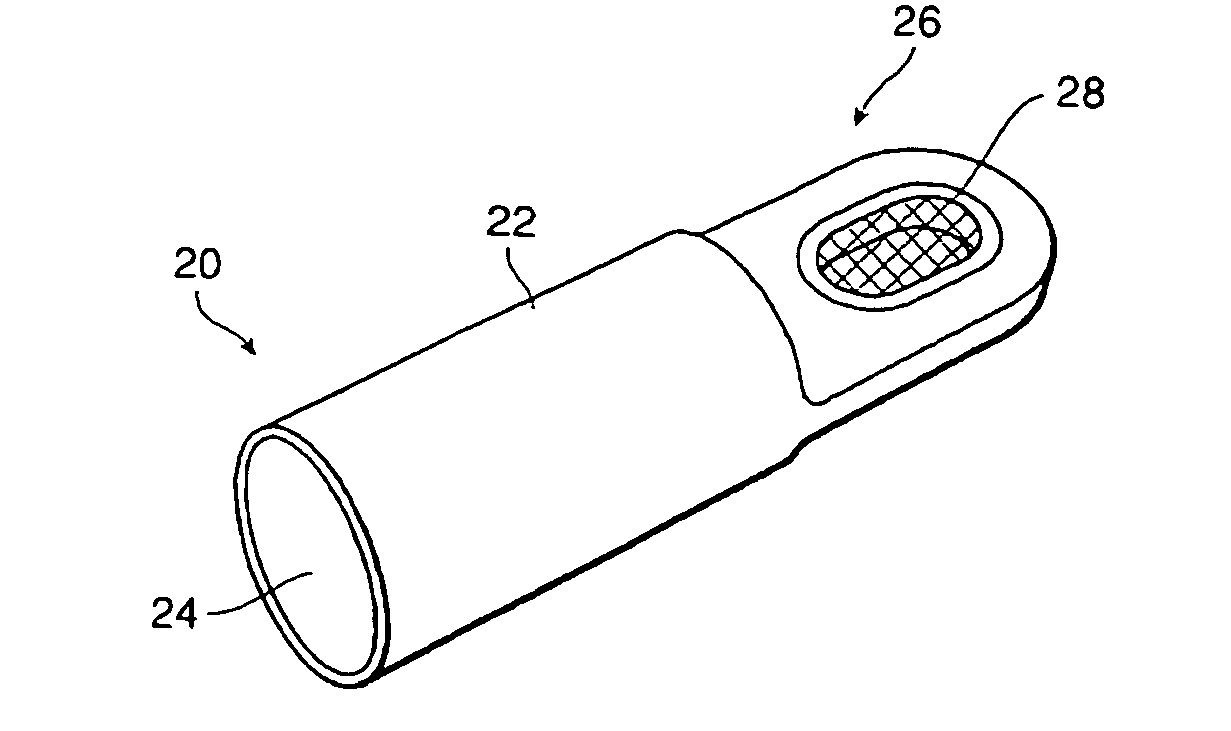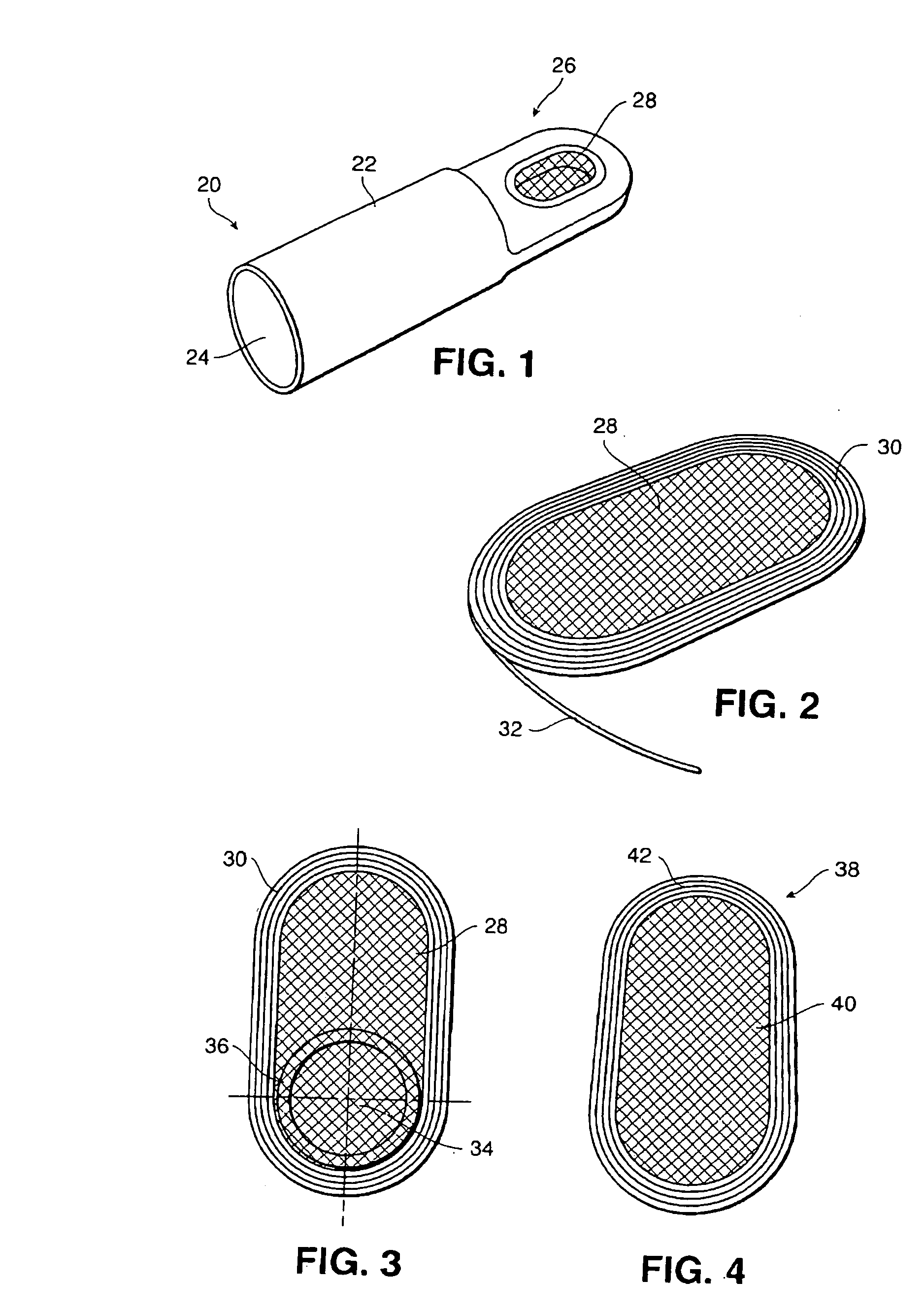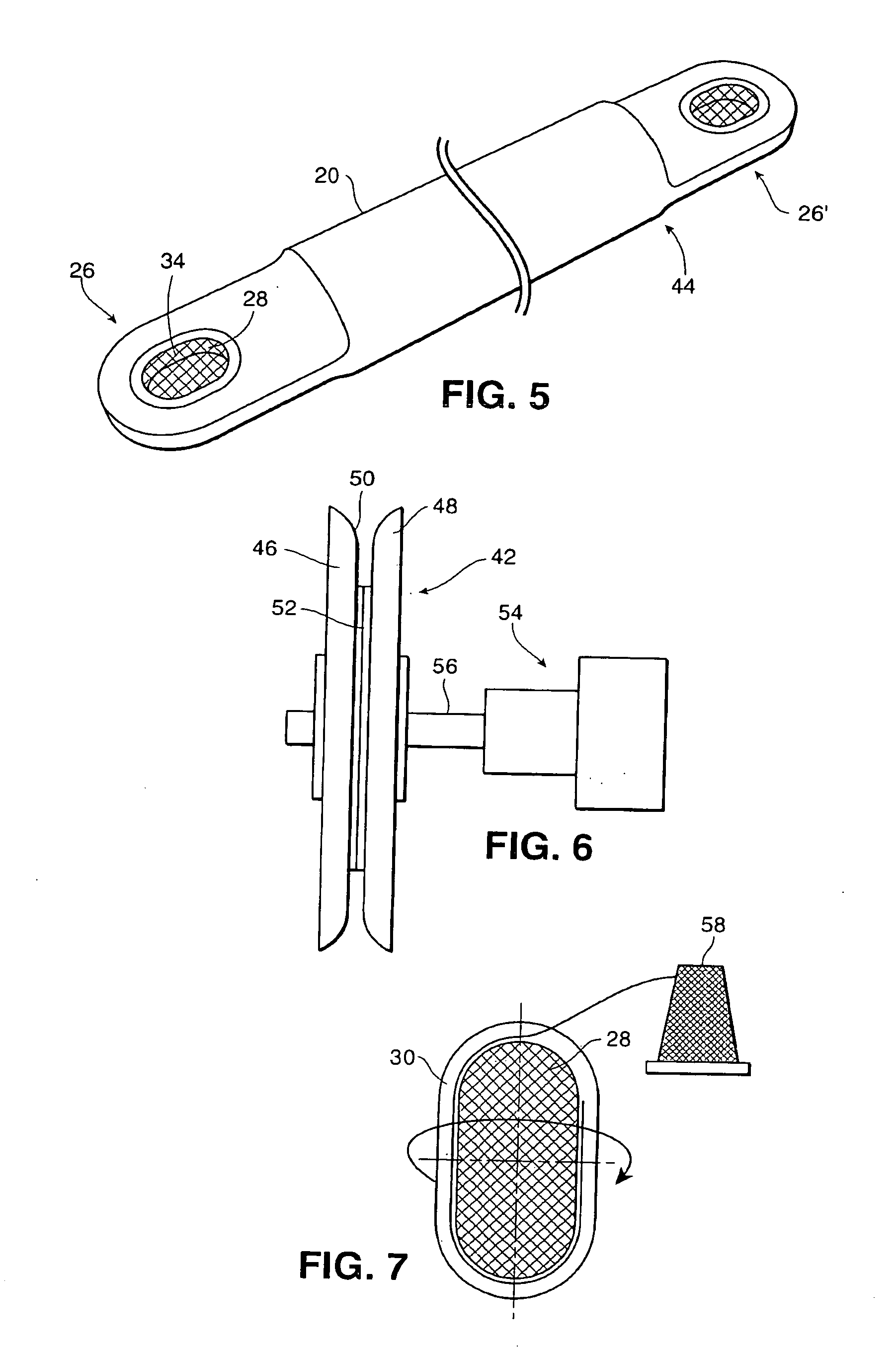Filament wound strut and method of making same
a technology of filament wounds and struts, which is applied in the direction of shock absorbers, other domestic objects, mechanical apparatus, etc., can solve the problems of composite materials that are not adapted to react to such loads, struts may be frequently required to transmit both tension and other problems, to achieve the effect of high reaction efficiency
- Summary
- Abstract
- Description
- Claims
- Application Information
AI Technical Summary
Benefits of technology
Problems solved by technology
Method used
Image
Examples
Embodiment Construction
[0036] Referring now in more detail and by reference characters to the drawings, 20 designates one form of strut which may be constructed in accordance with the present invention and includes a cylindrically shaped body 22 as best shown in FIG. 1. In this particular embodiment, the body 22 is shown as being hollow having an interior bore 24. However, in many cases, the cylindrical body 22 will be of solid cross-section.
[0037] The body 22 is primarily formed of filament wound material. Generally, the body can be formed of any reinforced composite material and can be actually formed in any conventional filament winding operation. The mandrel used in the winding process may become in-situ and remain in the strut as produced. Exemplary of the filament reinforcement are filaments of carbon, glass, boron and the like. Moreover, the filaments can be cured in either a thermosetting resin or a thermoplastic resin. A well known number of thermosetting and thermoplastic resins are available f...
PUM
| Property | Measurement | Unit |
|---|---|---|
| tension | aaaaa | aaaaa |
| shape | aaaaa | aaaaa |
| length | aaaaa | aaaaa |
Abstract
Description
Claims
Application Information
 Login to View More
Login to View More - R&D
- Intellectual Property
- Life Sciences
- Materials
- Tech Scout
- Unparalleled Data Quality
- Higher Quality Content
- 60% Fewer Hallucinations
Browse by: Latest US Patents, China's latest patents, Technical Efficacy Thesaurus, Application Domain, Technology Topic, Popular Technical Reports.
© 2025 PatSnap. All rights reserved.Legal|Privacy policy|Modern Slavery Act Transparency Statement|Sitemap|About US| Contact US: help@patsnap.com



